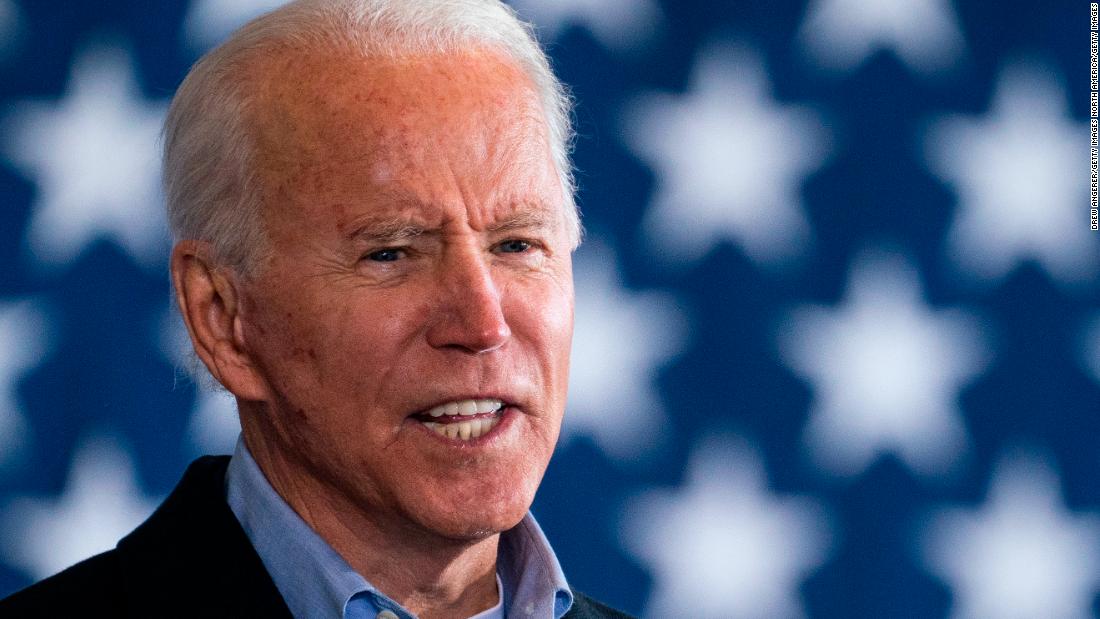Analysis: Joe Biden promised to return things to normal. Is that even possible now? - 5 minutes read
 (CNN) As Joe Biden edges ever closer to the 270 electoral votes he needs to defeat President Donald Trump, it's worth considering what politics will look like in the event the former vice president is elected -- and whether he has any chance of making good on his promise to return some sense of normalcy to our politics and our country.
(CNN) As Joe Biden edges ever closer to the 270 electoral votes he needs to defeat President Donald Trump, it's worth considering what politics will look like in the event the former vice president is elected -- and whether he has any chance of making good on his promise to return some sense of normalcy to our politics and our country."The American people want their government to work, and I don't think that's too much for them to ask," Biden said in the speech announcing his run for president in May 2019. "I know some people in DC say it can't be done. but let me tell them something, and make sure they understand this. The country is sick of the division. They're sick of the fighting. They're sick of the childish behavior."
That belief -- that Trump was an anomaly, a glitch in the Matrix -- undergirded Biden's entire primary and general election campaign. He campaigned as the change candidate -- to change things back to the way they were in the not-so-bad old days when Republicans and Democrats fought but eventually found ways to work together.
Biden's message, broken down to its simplest terms, was this: We -- Democrats and Republicans -- are better than these last four years.
The question, both during the primary and general election, was: Are we?
In each episode of his weekly YouTube show, Chris Cillizza will delve a little deeper into the surreal world of politics. Click to subscribe!
Liberal Democrats insisted that Biden's belief that Republicans would somehow wake up from the fever dream of Trump if he was defeated was decidedly wishful thinking. That the GOP is fundamentally lost -- and has little interest in getting back to any semblance of normal.
And then there are the Trump-backing Republicans who spent the last days of the campaign making wild and unfounded claims about Joe Biden's son, Hunter, and insisting that the former vice president was senile. And who now, led by Trump, are insisting -- with zero proof -- that the legitimate counting of votes in the 6 states that remain uncalled is somehow wrong or nefarious. (It is neither; it is how democracy works.
Even if Biden does wind up winning, then -- and he has many more paths to do so than Trump -- there are very real questions about whether the fundamental promise of his campaign is even remotely achievable.
Trump, because he is Trump, will not simply go quietly into that good night. Instead, he is likely to refuse to ever concede the race to Biden, or to use the laughable notion that counting all legally cast votes was somehow an abrogation of democracy. That victimhood, which has always sat at the center of Trump's personality, will fuel calls among his loyal supporters to run a sort of shadow presidency over the next four years and, yes, to possibly even run again for president in 2024.
Whether or not Trump ultimately pursues a third presidential bid is an impossible question to answer right now, but he will keep the possibility out there for as long as possible in order to exert massive influence over the Republican Party and, as importantly, to keep himself in the news and relevant.
Biden will have to grapple with Trump stirring things up from the outside. But even inside Washington, significant hurdles exist to Biden's hopes of making things normal.
Republicans are nearly certain to hold the Senate majority in 2021, a remarkable outcome given predictions from political prognosticators that Democrats were favored to ride an anti-Trump wave into the majority. That means that every part of Biden's presidency -- from his picks for Cabinet slots to his policy priorities -- will need Republicans on board if they are going to come to pass. And it's uniquely possible that (likely still) Senate Majority Leader Mitch McConnell (Kentucky) makes a strategic decision that cooperating with Biden on, well, anything, is not beneficial to his party's chances of regaining the White House in 2024.
Across the Capitol building, Democrats will retain their House majority, but not without a cost: Republicans will gain seats as a result of the 2020 election, an overturning of pre-election expectations that has already occasioned a call from within Democratic ranks for a reckoning with what went wrong. That reckoning will, almost certainly, pit liberals against moderates in the House Democratic caucus -- both of which will insist that had the party only listened more to them, things on November 3 would have been different.
A still-relevant Trump. A surprisingly buoyed Republican Party in the Senate and House. And a divided Democratic Party on the edge of an ideological war. This will be the political reality that Biden will step into if he is elected president.
And it's a set of facts that could well doom his chances of achieving his central campaign promise: To make politics normal again.
Source: CNN
Powered by NewsAPI.org